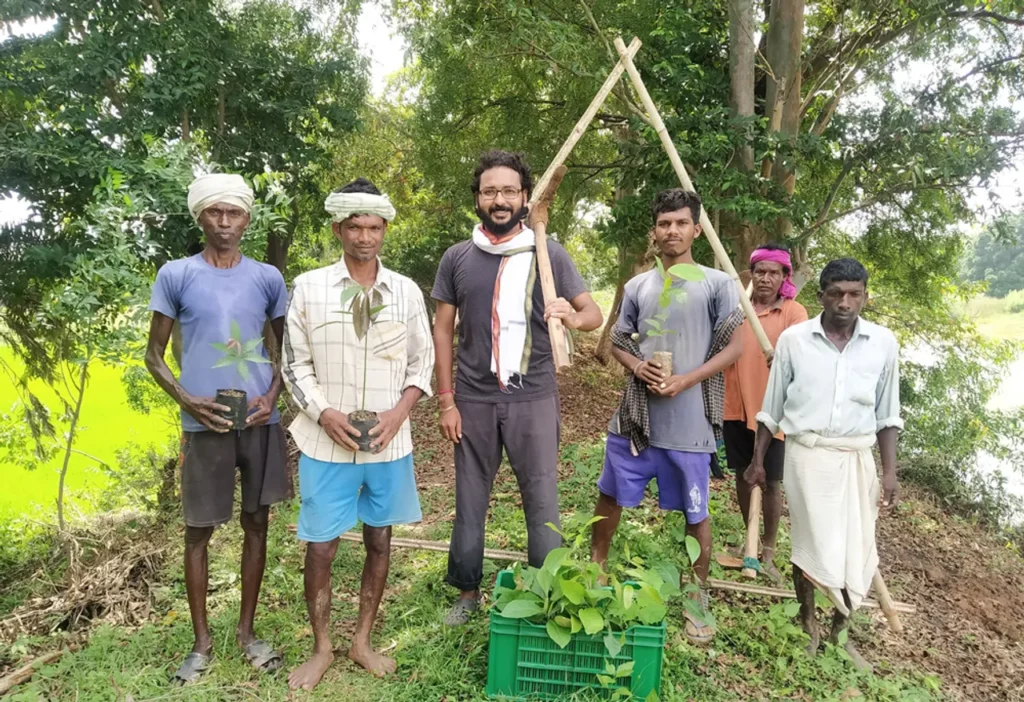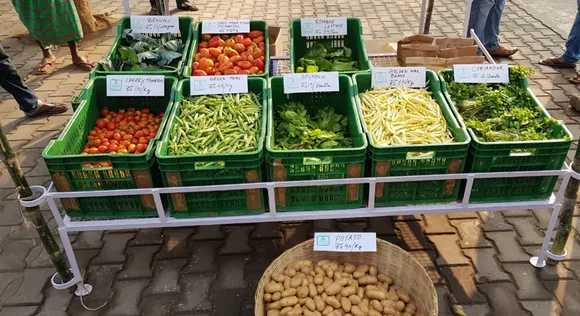Rakesh Mahanty took his inaugural breath in the bosom of a farming lineage, nestled in the precincts of Patamda, a hamlet approximately 30 kilometers distant from the urbanity of Jamshedpur in Jharkhand. The ancestral epochs witnessed the sustenance garnered from the fertile soil, yet the contemporary epoch saw his progenitor and avuncular figure eschew the agrarian vocation due to the ebbing remunerations. In contradistinction, Rakesh’s patriarch ardently championed a scholastic trajectory for his scion, envisioning a future secure in occupational pursuits.

Source:-30stades.com
Having concluded his educational sojourn at Kerala Samajam Model School, Jamshedpur, Rakesh navigated the corridors of academia to secure a B. Tech degree in 2012, commencing his tenure as an IT Analyst at Tata Consultancy Services (TCS) in Kolkata.
However, the tides of fate charted an alternative course. The agrarian spirit latent within Rakesh beckoned him to return to his roots. Consequently, six years hence, he bid adieu to his opulent corporate enclave, opting to inaugurate a farm-to-table organic culinary venture – Brook N Bees, in his native village, Aguidangra in Patamda, East Singhbhum.
“Despite my foray into engineering and corporate toil with TCS, my heart perennially resonated with the rural milieu,” attests the 31-year-old visionary.
For Rakesh, pecuniary gains and retirement security were inconsequential aspirations. “My aspiration was to inscribe a narrative of substance for my compatriots in the village,” asserts the maven.
To initiate the enterprise, Ramesh Mahanty amalgamated the land parcels of 80 tillers for communal agriculture, reaping advantages through resource amalgamation. As Rakesh embarked on this venture while still tethered to TCS, meticulous planning and assurance of a seamless transition marked his transition from the urban labyrinth to agrarian pursuits.
Despite maternal endorsement of his resolve, paternal discontent loomed. “My father’s apprehensions were not without foundation. He foresaw a dearth of prospects in agriculture, the very reason he ushered me towards urban sanctuaries for a secure existence.”
“The agrarian brethren, facing escalating costs and diminishing soil fecundity and revenues, were relinquishing the plow,” he laments.
To glean insights into sustainable agriculture, Rakesh traversed terrains in Punjab, Andhra Pradesh, Karnataka, and the eastern fringes of India. A six-month sojourn at XLRI-Xavier School of Management in Jamshedpur in 2017 ensued, culminating in a certificate in entrepreneurship development – a testament to his commitment to acquire the acumen requisite for efficacious business stewardship.

Source:-30stades.com
Brook N Bees peddles organic yields directly to Jamshedpur households and through ‘haat’ stalls. The unconventional modus operandi struck a chord with the conscientious clientele.
“I traversed diverse corners of India, absorbing agrarian wisdom and subsequently commenced vegetable cultivation on our modest land plot,” recounts Rakesh, whose familial estate spans 20 acres. Cultivating vegetables utilizing organic manure and vermicompost afforded him profound insights into organic farming. Satisfied with the outcomes, he commenced the ardent task of persuading fellow agriculturists to emulate his trajectory.
Rakesh orchestrated collaboration with approximately 80 farmers, consolidating arable expanses spanning around 60 acres to harness economies of scale through collective farming.
Faced with diminutive land holdings, marginal farmers grappled with the compulsion to infuse copious chemical fertilizers to augment yields, inevitably inflating costs and compromising the ecosystem.
Embracing the tenets of community-based farming, a paradigm championed by Rakesh, farmers pooled resources encompassing land, machinery, and knowledge, thereby fortifying their bargaining position in the marketplace.
“In the embryonic stages, the endeavor to persuade disillusioned farmers proved daunting. They were ensnared in the clutches of agricultural drudgery devoid of prospects for bountiful returns. However, witnessing the fruition of the sustainable agricultural model I nurtured over two years, farmers gradually rallied to my cause,” reflects Rakesh.
Presently, Brook N Bees stands fortified by the collaborative efforts of approximately 200 farmers, inclusive of women, all deriving a monthly remuneration ranging between Rs6000-8000.
Formerly beleaguered by the harsh realities of agrarian existence, migration to urban meccas seemed the sole recourse for these individuals.

Source:-30stades.com
“We espouse sustainable farming methodologies employing organic manure, vermicompost, and the cultivation of diverse crops on a singular expanse (crop diversity),” elucidates Rakesh.
In tandem with the burgeoning cognizance surrounding the salubrious attributes of organic sustenance, patrons demonstrate a willingness to remunerate a premium for Brook N Bees’ produce.
In a bid to curtail irrigation outlays and propagate water conservation, the farm integrates drip, sprinkler, and various micro-irrigation methodologies to minimize wastage









